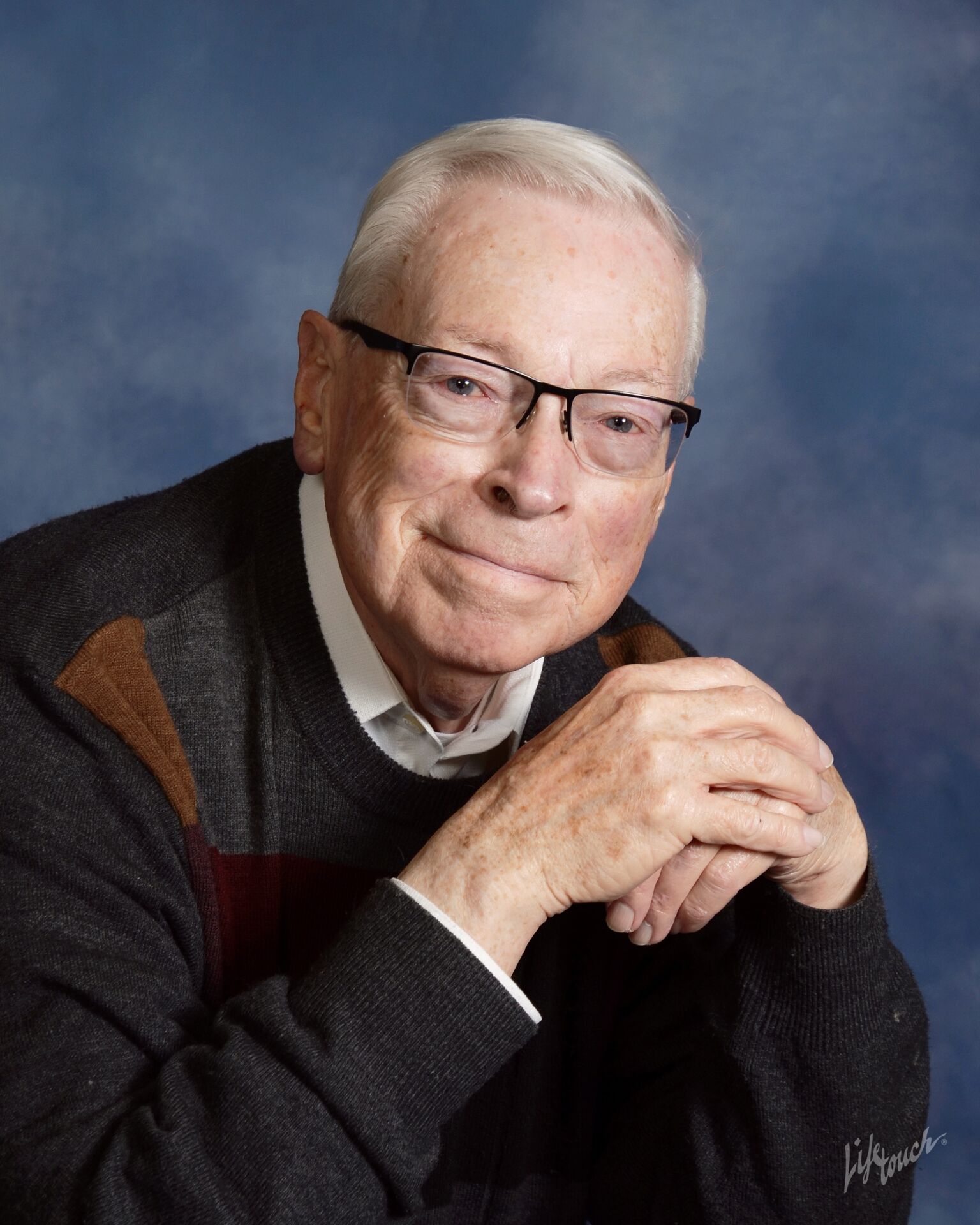Coping with Chaos: Part 2 of 3
Constructing A Healthy Identity

By Dr. Robert Leichtman
Summary
How we define who we are is the basis for determining the status of our strengths and talents. Those who see themselves as weak, victimized, or sick are automatically limiting their ability to thrive and manage their daily tasks. This is extremely important when we must cope with ongoing difficulties that have no quick or easy solutions. When our confidence and optimism are failing, we need to avoid the temptation to be defined by our problems and disappointments. Cultivating a healthy sense of identity does not mean we ignore any difficulty or handicap we have. A healthy sense of our strengths and abilities, however, gives us a starting point of power and knowledge for coping with whatever problems or opportunities we have. Our proper identity should be based on our personal merit and accomplishments rather than our burdens, struggles or membership in any group.
This is my second discussion about the need to be aware of how the agitation, distrust, and anger in mass consciousness can infect our emotions and damage our wellbeing. We need to understand that not all germs are physical. Some are the emotional germs of fear, anger, or despair.
These emotional germs can contaminate the atmosphere in which we live and work. Their impact on us can be subtle because they work by indirectly magnifying any tendency we have to feel discouraged, anxious, angry, or helpless.
Fortunately, we can learn to control and reduce the effect of this extra irritation from mass consciousness. Accomplishing this will support our ability to work with confidence, tranquility, and positive expectations.
The importance of our sense of identity
One of the key things we need to do to protect us from the harmful energies in mass consciousness is to streamline and reform our sense of identity. A weak or wounded sense of identity makes us far more vulnerable to distractions, anxiety, or disappointment.
There are two common errors that many people make about how they define who they are. The first is to be excessively dependent on the approval of others for their attractive appearance and general popularity among their peers. This focus often leaves us vulnerable to being insecure because it means we are relying on the support and opinion of others for our wellbeing. Our only dependable source of strength comes from our innate abilities, knowledge, and other strong qualities.
The second and greater error many make in defining ourself is in becoming too closely identified with:
illnesses and emotional wounds
old losses and mistakes
old conflicts and traumas
and all the frustration we retain about these issues.
No, we are not supposed to ignore any of these issues. We do, however, need to limit the degree and intensity of our concern about them. This means we need to control any tendency to:
over-think about our suffering
brood in deep resentment, despair, or helplessness
excessively identify with our limitations and disabilities
relive the experience of outrage about being victimized by some awful insult.
While it may seem logical and justified to work in this fashion, we need to be mindful that:
any set of muscles, beliefs, or attitudes we exercise will become stronger, including our ability to be frustrated and helpless
concentrating on what we dislike and the distress we feel will clog the channels we need for gathering our strengths and creative problem-solving skills
reinforcing our sense of being a wounded, weak, and damaged person will limit our abilities to survive and thrive.
We need to give top priority to staying centered in our actual health, strengths, abilities, courage, and confidence. This provides us with a platform of power and skills for managing our challenges and burdens. To the degree we allow fear, discouragement, and bitterness control us, we will be disconnecting ourselves from our power to control and manage our life.
How to stay centered in our strength while coping with problems
While we must acknowledge our legitimate illnesses and other burdens, we need to exercise restraint about how we view them. It is important that:
our problems and illnesses must not be the lens through which we view and judge our whole life and future
nor should they be given authority to rule what we do and how we act.
Many good people fail to realize that a problem-centered or sickness-centered life is already crippled before there is any attempt to manage these issues. We generate powerful handicaps for ourselves when much of what we think about is colored by our habitual gloom, fear, or resentment.
This does not mean we should ignore or deny the presence of real issues in our life. But we can multiply our confidence and assertiveness if we deny the authority of an illness, grievance, or loss to dominate how we think, feel, and act.
Some are puzzled about how this can be accomplished when our difficulty is obvious, painful, and disturbing most of the time. The key is to change our perspective about two major observations about ourself. First, we need to be aware of all the parts of our humanness and life situation, including our healthy parts – not just the sick or dysfunctional parts. Second, we need to know which parts are very important and vital to our wellbeing and honor them above the wounded parts.
If we use this perspective, we may well have real illnesses, injuries, and other burdens, but we will know this is never all that we are. There other parts of our character and life situation that are:
still operating well
capable of creating some success and satisfaction
able to nourish our well-being and sustain us while other parts are disabled
are helping us to be useful to ourself and others
and have the power to contribute our own healing.
The proactive way to evaluate ourself and our situation in life
We may have significant problems and struggles, but we will achieve more if, from the beginning, we work with our strengths to cope with them. This means we give a higher priority to our capacity for courage, intelligence, hope, and persistence rather than our fear, despair, or helplessness. This is how we define a healthy perspective about ourself and our condition.
In practice, this means we declare that our basic identity is as a strong and healthy person. We are not a sick or wounded person. We are a healthy person who just happens to have a few problems that we are managing. We are a confidant and cheerful person who is dealing with a part of us that is feeling discouraged and defeated.
Some will claim that is no more than a cheap intellectual deception, but it is not. This change is designed to shift our perspective about our challenges and burdens – not deny them by magical thinking. This redirection of how we view and analyze ourself and our situation makes a huge difference in how well we will mobilize our strengths to survive and thrive.

Beware those who want us to focus on our problems and weaknesses
Some people encourage us to focus on our weaknesses and difficulties. They often obscure their motives by their false compassion and desire for us to “rest” and “take it easy” because we truly are overwhelmed and helpless. This may seem to help us feel better, but it only indulges our lack of power and our desire to escape our distress. The ultimate impact of this “kindness” is to emphasize our weakness and make us even more vulnerable to anxiety and helplessness.
Beware that this secret enemy who encourages us to focus on our weakness might be our own department of pessimism and helplessness. This is the part of us that may regard our possibility of health and happiness so unlikely that it is futile to attempt to restore it.
It is never a good idea to put our pessimism, anger, fear, or helplessness in charge of our life.
The sin-centered life
A word of warning for the very, very religious. Be very careful about overdosing in a concern about sin – or the commonly used substitute word for sin – brokenness. As spiritual people, we are obligated to stay centered in:
our spiritual nature and our relationship to the creator
our God-given strengths and gifts
our capacity to apply them in how we live as we demonstrate noble qualities in our lifestyle and our efforts to be useful in the world.
If this statement seems confusing to you, think of it this way.
If we are ordinary people who love our family and have a job or other specific duties to perform, then most days we will be engaged in our domestic and career duties. This will be our main focus of attention and activity. But if you add an irrational fear that we must avoid visiting the city dump and rolling around in the garbage, this fear will add nothing to the quality of our life, the well-being of our family, or our other activities. It is important that we reject making our top priority not going to the city dump – just as our dominant concern should not be the avoidance of sin.
Instead, we need to stay focused on being:
a decent and compassionate human being
a proper and loving spouse and parent
a responsible, honest boss or employee
a mature and responsible member of the community.
The sin-centered life is able to cripple our access to the life of spirit. It redirects our priorities to shunning and inhibiting sinful desires and intentions instead of demonstrating our God-given strengths and abilities. The actual impact of the sin-centered life is to keep us focused in the material plane with all its burdens, struggles, and limitations.
Identifying with our tribe
There is another major problem with our sense of identity. It is a complication that is new to the modern age and mass media. It has a powerful impact on our sense of being burdened and feeling helpless about our situation.
This new problems stems from the tendency of many to judge our whole character and worth based on our skin color, race, gender, class, and religion. Any special abilities or merit in our character is far less relevant than the tribe to which we belong.
There are highly judgmental people are determined to ignore our merit and quality of character. Instead, they recognize largely our skin color, gender, class, religion, and politics. Their secret intention is for us to take the characteristics of our group as our dominant identity. This is to include:
all the bad tendencies and offenses of our group (race, gender, class, religion, politics)
the responsibility for having caused all these offenses
and our duty to fix or compensate for all these crimes—even though we personally may have done none of these things
In other situations, we might be expected to take on as the dominant aspect of our identity and obligations:
the wounds and grievances of our group now become our personal wounds and limitations
and we are obligated to become a warrior who joins that angry resistance to retaliate for these crimes
If these beliefs seem acceptable, then go for it. But please consider the consequences of these convictions. Taking on the grievances of our tribe (class, gender, race, class) can severely limit our confidence and assertiveness as well as our joy and peace of mind.
For others, the assumption that we are responsible for the crimes and offenses of our group will create a huge load of guilt, remorse, and despair. This will impose a terrible burden that can overwhelm our ability to thrive in the midst of the frustration, exhaustion, and helplessness it creates.
We need to be careful about assuming we must fight for all wounded victims—unless this is a conscious and deliberate choice. Do not be guilted into thinking that we are obligated to do this or that we are insensitive or selfish for making our own needs and obligations as our top priority.
If we fail to exercise caution here, we may be drawn into a cultural war that can damage us. If this is your conscious choice, so be it. However, be warned that these wars are rarely won by those who operate in a state of righteous indignation and the zeal to punish enemies.
When we are caught up in group identity, is almost always means less contact with our higher self and the best in our human nature. And thus, it means less attunement to our own design for wholeness. Instead, we will be focused on group thinking that often collects itself around grievances and victim consciousness.
The real cure of such conflicts is found in shared values, principles, and goals that are accompanied by behaviors that are constructive, compassionate, and foster cooperation—not distrust and more animosity.
Think on these things

Building Better Boundaries
In Part 1, we learn to protect ourselves from external influences by building better boundaries that serve to preserve our lifeforce and peace of mind.

Creating A Balanced Outlook
In Part 3, we cultivate a balanced and healthy outlook that recognizes and accepts both positive and negative qualities in ourselves and society.
